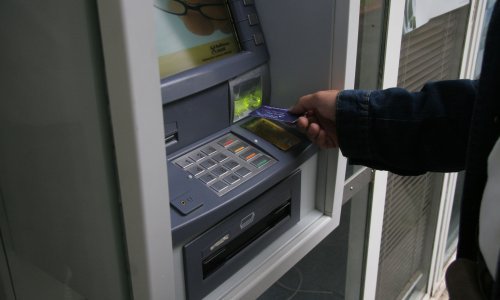Considering the weak foreign demand and difficulties in directing the economy toward exports, benefits which usually occur when a country joins the European Union perhaps may not occur entirely in Croatia and so a rebound to a healthy growth rate in the medium term is not likely, Moody's credit rating agency has said in its latest credit outlook.
Croatia's credit strength lies in the fact that its income puts in the upper-middle class along with medium and long term prospects related to membership to the EU, Moody's "Credit Opinion" released on Tuesday says.
However, it remains to be a relatively uncompetitive economy, which exhibits sluggish growth that is highly reliant on domestic demand, an increasing debt and deficit levels and significant external vulnerabilities.
"Croatia is fairly wealthy compared with other Central and Eastern European countries that have joined the EU since 2004. However, the global financial crisis unmasked the weakness of an economic model that is reliant on private consumption and construction fuelled by external credit," the report notes.
After a period of growth 2001-2007, the Croatian economy has been faced with recession. In 2012, the real economy contracted again by 2% in real terms and Moody's forecasts a further fall of 1.2% this year. Moody's projects a marginal recovery of 0.3% in 2014.
Despite a recent and noticeable policy shift, the authorities' efforts at implementing reforms have not yet supported internal devaluation and the unlocking of Croatia's growth potential.
Given weak external demand prospects as well as the difficult re-balancing of the economy towards exports, Moody's believes that "benefits normally derived from EU accession may not fully materialise".
As a result, a return to steady and healthy growth levels is not likely over the medium term. Moreover, the government's scope for action is limited as its financial room for manoeuvre and capacity to stimulate the economy are constrained by its relatively high debt ratio and the immediate financial cost associated with EU membership, the report says.
Croatia also faces high "external vulnerabilities caused by its heavy reliance on external credit prior to the global financial crisis. Although private-sector de-leveraging contains external debt, mostly foreign-currency linked, its level remains at a high 105% of GDP."
Croatia's External Vulnerability Indicator is very high at almost 196 per cent, which is very high at any standard, Moody's notes.
However, the decline in aggregate demand has narrowed the current account deficit and should help cap external debt in the near term, the agency believes.
Moody's has retained Croatia's credit rating at Ba1 and assigned a stable outlook because of the limited risk that the government's fiscal position and debt will materially deteriorate.
Croatia's rating could go up with a robust economic recovery, coupled with sustained reductions in government debt levels.
On the other hand, its rating could go down with further deterioration in the economic environment, resulting in sharp increases in debt levels and/or higher risks stemming from the country's external vulnerabilities, says Moody's.































